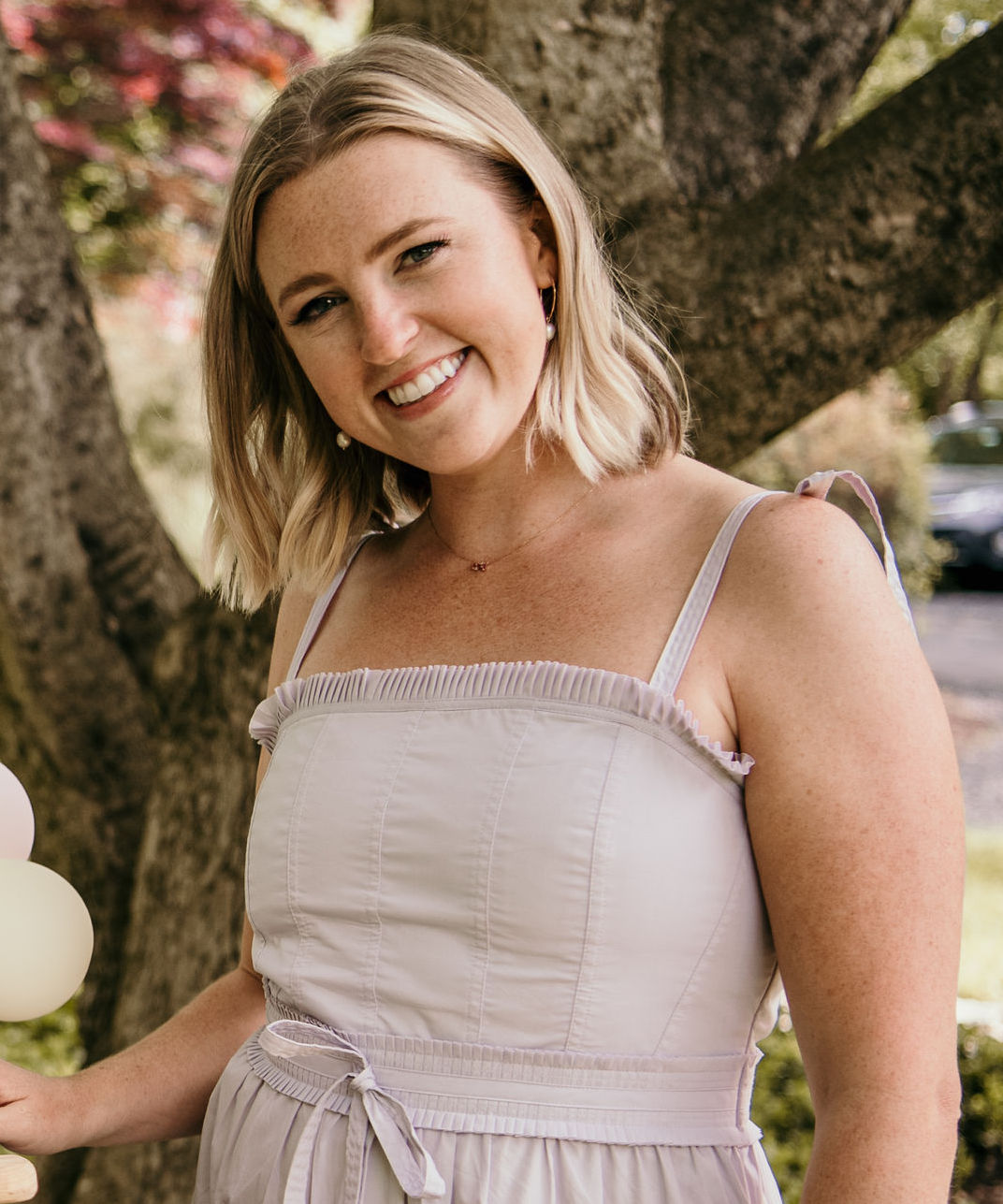
Ally Peabody Smith is “here for the brains,” she says with a laugh.
Peabody Smith is a philosopher, ethicist, and mixed-methods researcher who joined the College of Health (COH) faculty in 2024. As an assistant professor in the department of population health, she specializes in the philosophy of medicine, the philosophy of disability, ethics, bioethics, and neuroethics. Her work reflects the COH’s holistic approach to health education, including how philosophy shapes theory and practice in health. With the support of the COH, she approaches her work from many angles: from organizing conferences and events in her field, to applied research studies, to writing a book, and more. This fall, she will teach Research Ethics to Ph.D. students.
Peabody Smith’s philosophical interests focus on how we tend to assume that humans have a special moral status. “What’s special about us? What’s different from other living beings? And what does it mean about how we have to treat others, human or not? I think that a lot of the reasons we assume we’re special aren’t correct, and so we need to find a new way to understand who and what have special moral status and deserve special treatment.” she asks. This question is the topic of her book project, Love Without Language, in which she introduces a novel grounds for moral status, the capacity to communicate to develop and deepen relationships.
Peabody Smith conducts applied research that helps to improve health outcomes for severely cognitively disabled people, including those with intellectual and developmental disabilities, traumatic brain injury, dementia, and Alzheimer’s. She also works in the ethics of brain enhancement, such as brain computer interfaces and pharmaceuticals that improve brain performance in ways that might exacerbate existing injustices and disparities across human beings, she said.
Peabody Smith has a number of research projects in the works. Along with Rhonda Tucker, a Clinical Researcher with Good Shepherd Rehabilitation, she is developing an app for individuals with complex health needs. Good Shepherd is a COH partner in the area of disability health equity, and its collaboration with Lehigh now reflects a broader, university-level partnership aimed at advancing research, education, and innovation in rehabilitation and population health.
According to Peabody Smith, “It started with an interest in folks with more significant intellectual disabilities who really require this collaborative health team in order to have anything happen, primarily because they can’t always advocate for themselves in clinician interactions. The app is meant to address this by making a HIPAA-compliant medical smartphone app that enables a social network across the care team.”
Peabody Smith is also collaborating with Ian Peebles at Arizona State University on a paper on the role of virtue ethics in medicine, and on developing a pilot curriculum for medical school students that integrates virtue ethics, with the goal of improving outcome disparities and increasing empathy towards marginalized groups.
She is active in her field as a conference and event organizer. As a co-chair for the Disability Bioethics Affinity Group for the American Society of Bioethics and Humanities, Peabody Smith is organizing a panel event on the changing funding landscape in the area of disability bioethics at the federal level. This event takes place on July 24 during Disability Pride Month.
“This felt like a really timely thing to do given the impact that it has on bioethics. It is one of the more marginalized areas for research that is going to be particularly impacted from these changes,” she explained. Heather Messina, the COH’s Associate Director, Research Administration, will be a featured panelist, along with representatives from the Greenwall Foundation, Johns Hopkins, and the University of Pennsylvania.
Peabody Smith is also spearheading an interdisciplinary conference at Lehigh to take place on September 19-20 at the COH. Organized in conjunction with an art installation on Mountaintop, this conference is entitled “Phenomenologies of Mental Health, Well-Being, and Flourishing.” The event will bring together social scientists, epidemiologists, psychologists, neuroscientists, and philosophers around the topic of phenomenology of mental health. Phenomenology is the study of first personal subjective experience. College of Health faculty members Fathima Wakeel and Tracy Nichols are also part of the conference planning committee, as is phenomenology expert and Pomona professor of phhilosophy, Ellie Anderson, who hosts the popular podcast Overthink.
As a philosopher, Peabody Smith strongly believes that theory impacts practice.
“When you look at the history of how we’ve treated people in a society, you see how there’s this kind of bidirectional relationship between prevailing philosophical attitudes and who is left out or treated really badly. Work that’s done in ethics, even if it's done at a more theoretical level, does wind up trickling out to application,” she said.
“I also think that medical ethics education has an impact on how we see outcome disparity become mitigated when you're looking at the connection between health practice and research practice,” she continued. “Educating researchers and clinicians in more comprehensive ethical pictures will only be good for the people that they're serving or conducting research upon down the line.”